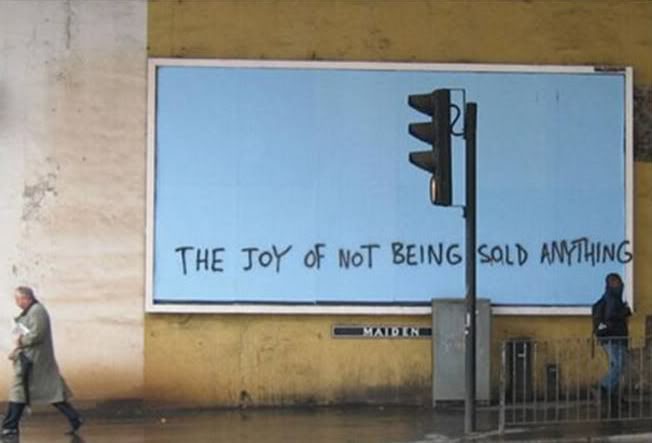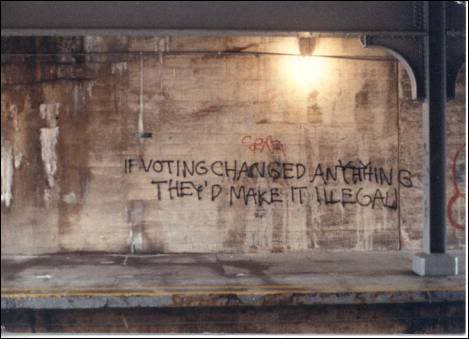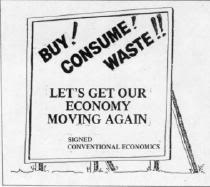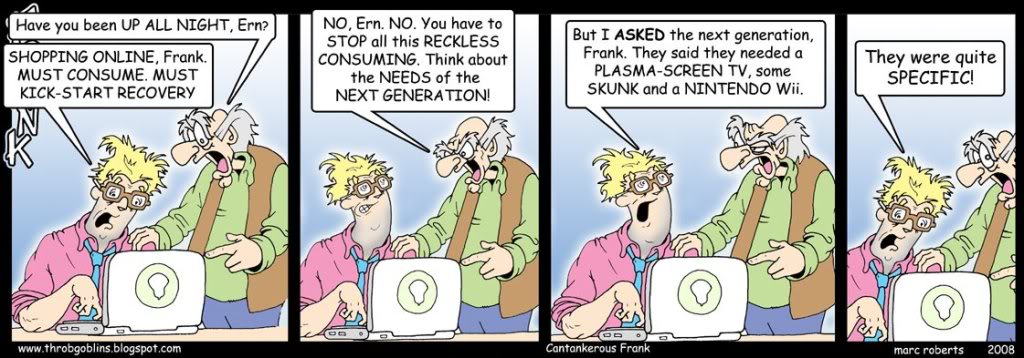“A person will worship something, have no doubt about that. We may think our tribute is paid in secret in the dark recesses of our hearts, but it will out. That which dominates our imaginations and our thoughts will determine our lives, and our character. Therefore, it behooves us to be careful what we worship, for what we are worshipping we are becoming.” ~ Ralph Waldo Emerson
I have often written on the topic of cultural stories, but I am told I have never explicitly addressed on this blog why I feel they are so critically important in our struggle for a future.
I am on record as stating that climate change and peak oil represent perhaps the most urgent and significant forces shaping our age, yet in an important sense even these trends are only symptoms of an underlying issue. They are consequences of the choices we have collectively made and continue to make, and these choices are formed by our understanding of the world – by our stories.
It is the stories that we tell ourselves about life – both individually and in our wider cultures – that allow us to make sense of the bewildering array of sensory experiences and phenomena that we encounter. They tell us what is important, and they shape our perceptions and thoughts. This is why we use fairy stories to educate our children, why politicians present both positive and negative visions and narratives to win our votes, and why advertisers pay such extraordinary sums to present their perspectives.

As John Michael Greer put it,
“When people treat, say, fizzy brown sugar water as a source of their identity and human value, their resemblance to fairy-tale characters under an enchantment isn’t accidental”
Our cultural stories help to define who we are and they strongly impact our behaviours. One example of a dominant story in our present culture is that of “progress” – the story that we currently live in one of the most advanced civilisations the world has ever known, and that we are advancing further and faster all the time. The definition of ‘advancement’ is vague – though tied in with concepts like scientific and technological progress – but the story is powerfully held. And if we hold to this cultural story then ‘business as usual’ is an attractive prospect – a continuation of this astonishing advancement.
The problem with stories comes when they shape our thinking in ways that do not reflect reality and yet we refuse to change them. The evidence might support the view that this ‘advanced’ culture is not making us happy and is rapidly destroying our environment’s ability to support us, but dominant cultural stories are powerful things, and those who challenge them tend to meet resistance and even ridicule. Yet as Richard Heinberg comments,
“Once we lived with a sense of our own limits. We may have been a hubristic kind of animal, but we knew that our precocity was contained within a universe that was overwhelmingly beyond our influence. That sensibility is about to return. Along with it will come a sense of frustration at finding many expectations dashed.”
The developing physical reality of ‘Peak Climate’ will surely change our cultural stories, whether we like it or not, but we can choose whether to actively engage with this process or to simply be subject to it.

The powerful cultural story that “real change is impossible” makes it seem inevitable that current trends will continue inexorably on, yet in reality cultural stories are always shifting and changing, often subtly, but sometimes dramatically. Given their importance, then, we should pay close attention when Sharon Astyk argues that there are certain key historical moments at which it is possible to reshape cultural stories rapidly and dramatically, by advancing one’s agenda as a logical response to events:
“I think it is true that had Americans been told after 9/11, “We want you to go out and grow a victory garden and cut back on energy usage” the response would have been tremendous – it would absolutely have been possible to harness the anger and pain and frustration of those moments, and a people who desperately wanted something to do”
As Naomi Klein highlights in her book The Shock Doctrine, this insight has until now mostly been used to advance cultural stories that benefit a few at the expense of many. Astyk though contends convincingly that as understanding continues to spread, there is no reason why we could not challenge those voices and ensure that we face the next ‘threshold moment’ with a dominant narrative linking it to the energy and climate context (to which it will almost inevitably be related) and so urging the kinds of attitudinal and lifestyle changes that reality demands.
Our work in spreading awareness and understanding until then could give us that chance.

This article is a slightly modified extract from my forthcoming book The Transition Timeline, produced in partnership with the Transition Network and set for publication in March 2009 and available now, published by Green Books.



There is a deeper problem for mankind than either peak oil or climate change, which is indeed the cause of both becoming problems so rapidly and at the same time …
Curiously it is trivially simple to solve by means of simply making a law banning interest being charged on loans (and stopping banks from creating money from nothing) …
Everyone hates prices forever rising on things of fixed value and few will think the world slump which now we enter is equally caused directly by our bad laws on money …
But the effect of such a simple thing on societies and civilisations is profoundly evil, it is the single greatest cause of inequality in the world – how does this come about then?
Again it is simple yet horrendous, our money law has been corrupted so that it guarantees that a certain percentage of people will be unable to pay the interest on their loans , the money they need is simply never created by the system, so their lives must be destroyed just because they took out a loan
Money to pay interest on all loans is just never created , so the loan interest just cannot be paid , the system then repossesses people who never had any chance whatever to not be repossessed.
That is simply evil , as evil as the death squads ‘disappearing’ a percentage of people continually in Nazi Germany , and just as insidious and it happens automatically ,accelerating whenever there is a slump …
The effect on the people is to create the ‘rat race’ which people have grown used to living in , but also it has given a few people so much money that they now control governments , corrupting laws and controlling our world to favour their personal power , but against the interests of the masses.
To even face the challenges of peak oil and climate change one needs mankind acting as one, but this monstrously unjust system we live by sets people against each other … the first step then is to right the injustice of our system of life , but it can only be done by the divded masses uniting and forcing governments to change the system currently enshrined in laws and running our world.
It is a Catch22 situation, the system divided people to abuse them and gained massive power over whole nations, so people now do not feel able to unite to stop it .
The extent and depth of this evil is likely the greatest mankind has ever devised for ourselves to suffer from , and likewise its consequences are immense for those trying to get people together to reduce the impact of the many onrushing crises mankind now faces because we neglected justice and equality for so long.
[…] If we are serious about retaining a hospitable climate, we need a fundamental re-evaluation of our entire way of life, and the only way that will come about is through changes in the fundamental stories we tell ourselves about life and what it means. […]
[…] I got back from the Dark Mountain Project’s Uncivilisation festival a few days ago, and while I could write about many of the aspects of that stimulating week, one thread it really tugged on for me was the role – the critical importance – of the arts in shifting the cultural stories that shape our future. […]